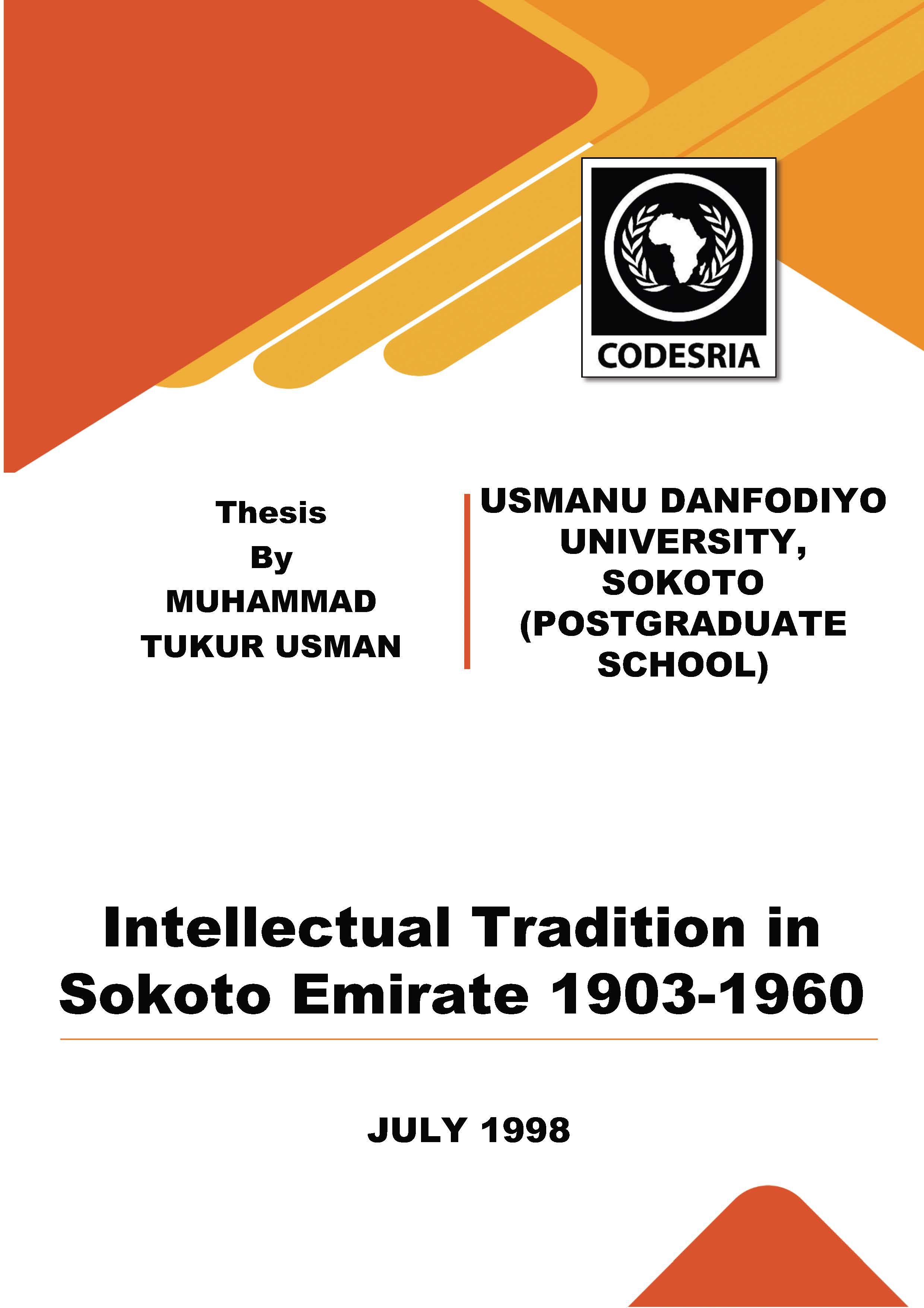Intellectual Tradition in Sokoto Emirate 1903-1960
Mots-clés :
Tradition, Sokoto, 1903-1960Synopsis
This study is on the history of intellectual tradition in Sokoto Emirate of Northern Nigeria during the 20th century. Jp.e specific issues about intellectual tradition discussed in this study is on the activities of the Muslim intellectuals known as the ulama (Arabic; sing = alim). The study concentrated on the role of the intellectuals in their traditional function in the field of learning and scholarship.
The work is divided into seven chapters. We tried to trace the early history of intellectual tradition in the region ofHausaland as far back as the 15th century in Chapter One. It was in the 15th century when Islam was introduced in our area of study ,that an intellectual culture along the Islamic tradition started to evolve. The main issue that was highlighted in Chapter Two was the colonial invasion of Northern Nigeria and the subsequent occupation of our area of study early in the 20th century. This development led to the imposition of a new socio-political order by the British. The reaction of the ulama to the imposition of colonial rule was expressed in different ways, and this formed part of our discussion in Chapter Three.
The role of the ulama of Sokoto under the colonial administration as advisers, judges (alkalal) and in some other administrative capacities has been analysed in Chapters Four and Five. We tried to highlight the symbiosis that existed between Islamic system of education and the newly introduced Western School System in Chapter Six. In particular, the impact of the Western Schooling (boko) on the Islamic School System had been discussed at length. Most significant being the emergence of the Islamiyya Schools ( called Nizamiyya in Sokoto) which are the schools operated along the formal Western Schools also formed part of Chapter Six.
The focus of Chapter Seven is on the contribution of some selected intellectuals. We discussed the role of such ulama in bringing about social changes in Sokoto Emirate in particular and Northern Nigeria in general.
Téléchargements
Références
Mal. Muhammadu Boyi (73 years). An Alim (Muslim teacher/intellectual) resident at Kofar Atiku area in Sokoto City. He has a modest collection of intellectual works by some of the 19th and 20th century ulama of Sokoto area. He is also an expert on the oral history of the Sokoto Caliphate. Interviewed on 29 Dec. 1996, and 25 February 1997 and 2 February 1997.
Mai. Y ahaya Al-Amin (b.1953). He is one of the people who started from the traditional Islamic School system and later switched to the modem school system (boko) University level. He is from the learned family of Qadi 'Abd-Allah ,vho advised on the hijrah of Caliph Attahiru I. It was through Malam Y ahaya that Qadi Abd-Allah's Risala ilal-}vfu'asirin was first brought to the limelight in 1995. Interviewed on 3rd June 1997. Mal. Y ahaya is now a lecturer with the Centre for Islamic Studies Usmanu Danfodiyo University, Sokoto.
Abdullahi b. Fodiye, Ida al-Nusukh (Trans) by M. Hiskett as "Material Relating to the State of Learning Among the Fulani Before their Jihad B.S.O.A.S., xix, 3, 1957 pp.550 - 578.






